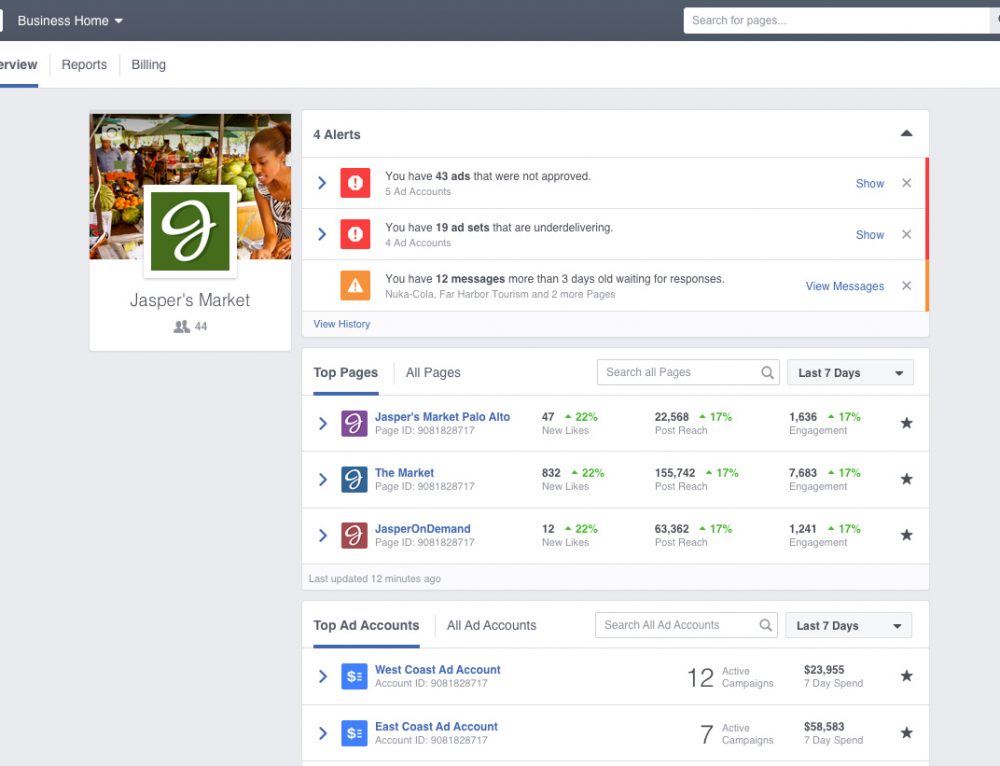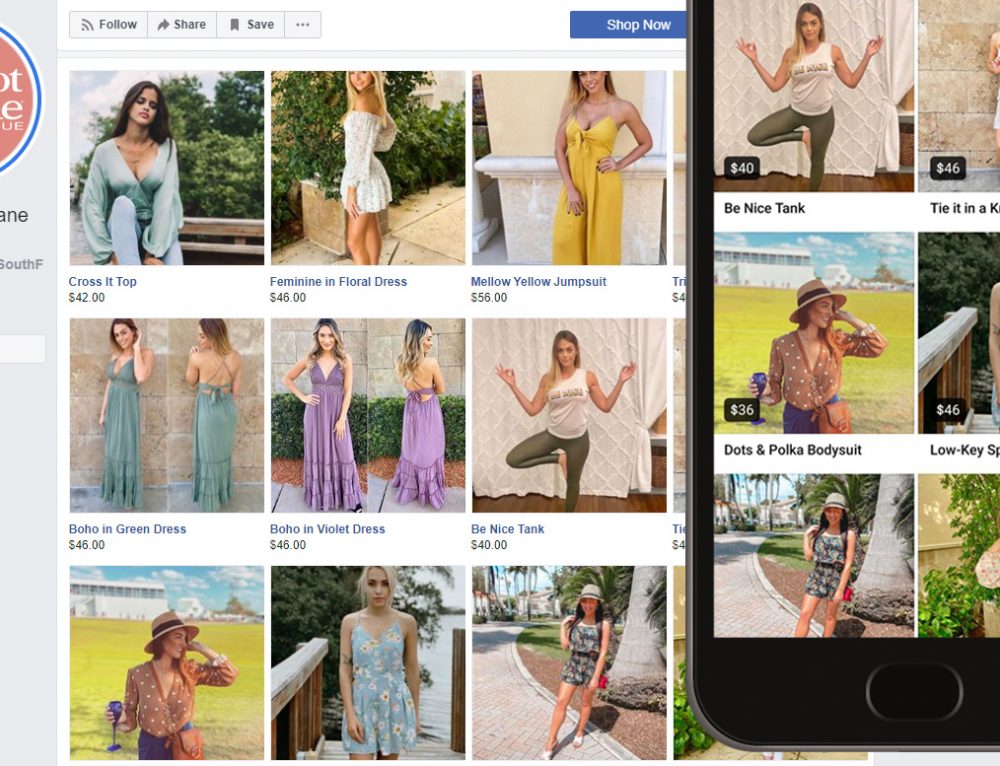
Most local businesses don’t have big budgets. But that doesn’t mean that their marketing efforts have to stay small. There are plenty of strategies that local businesses can use to drive customers to their stores while getting the most out of their marketing dollars. It’s always wise for businesses to keep up with trends and use modern marketing techniques, like guest wifi marketing, instead of being stuck in the past with traditional marketing methods.
We launched our first list of free and cheap marketing tactics back in 2017. Now, we’re updating that list with the most powerful and cost-effective ways to grow your local business today and beyond.
Be Active in Online Communities
Being helpful was a tactic we talked about back in 2017, and it’s still relevant today. Online communities like Nextdoor are now even more popular and filled with thousands of people who could be looking for your expert advice.
Online communities that are specifically related to your industry are a great way to establish your authority, as the editorial team at WPBeginner notes. Some of these communities are obvious. If you run a hospitality business, Tripadvisor is a must.
Don’t join just any community, however. It’s important that you only invest your time in places where potential customers are active.
Bean Ninjas’ Meryl Johnston recommends trying out several communities to get a feel for which ones suit you and your business. When you’ve found one or two communities that work, focus your attention on being as helpful as possible to other members of that community.
When it comes to posting, our advice hasn’t changed since 2017: Be as helpful as possible without expecting anything in return. Just make sure you link back to your company’s website in your profile.
Create a Business Profile on Facebook
Facebook remains a pivotal platform for local businesses today. In fact, it’s possibly even more important now than in 2017, given Facebook’s increased emphasis on local communities.
Facebook visibility can also improve your business’ rankings in Google, writes entrepreneur Alyssa Gregory. All of the content that you post to Facebook, including your page itself, can be indexed by Google and show up in results pages.
It’s essential that you create a separate page for your business, says social media strategist Saige Driver. You won’t be taken seriously as a local business if you’re posting from your personal account.
Filling out your business profile as much as possible is also important. This includes photos of your business, contact information, a link to your website and your operating hours.
Then, Post Interesting Content to That Account
As we said back in 2017, it’s not enough to create a Facebook account. You need to keep posting high-quality, engaging content that your audience loves.
Writer Christina Newberry recommends that business owners take a quality-over-quantity approach to content creation. Focus on helping customers and building a relationship rather than trying to hammer home a sales message. Your audience will be much more likely to engage and share your content if it offers value.
You don’t have to create all of the content yourself, however. Curating content from other interesting voices in your space can be a great resource. Or consider user-generated content, posting pictures and messages by your fans onto your business’ social media profile.
This benefits your business in two ways, notes writer Liz Forment. First, it makes content creation much easier for you. Second, it shows to the world that you have an engaged and loyal fan base who are more than happy to shout about your product or service.
“Consumers today, and especially the millennial generation, want to see input from other customers before they buy,” Forment writes. “According to Mintel, 81% of 18 to 34-year-olds seek out opinions from others before purchasing. That might have something to do with the fact millennial money mistakes are so prevalent and the younger generations are trying to get smarter with their money. The fact of the matter is they trust people over brands. For small businesses that take this approach, that knowledge is a powerful tool. And it also explains why user-generated content works so well.”

Work With Other Local Businesses to Cross-Promote Brands
Cross-promotion is a great way to acquire new customers and forge strong relationships with other local businesses.
Fundera’s Emily Kate Pope recommends finding a business similar to yours – but not a competitor – and creating a joint event such as a charity night. It can be a one-time event, or it can be an ongoing partnership that continues to grow both businesses
You don’t have to stick to creating offline events, says Wordstream’s Megan Marrs. Webinars and online promotions can also be an effective way of introducing audiences to new products and services.
As we wrote in our previous article, having a win-win relationship is the key to success with this tactic. You’ll want to look for a business that has very different services but a very similar target customer.
Claim and Optimize Your Google My Business Page
Online search is becoming increasingly important for local businesses. When in doubt, people turn to Google to find a particular type of business near them.
But they also search online for more information about businesses that have been recommended to them, writes AttorneySync’s Gyi Tsakalakis. And this almost always forms their first impression. As a result, Google My Business a free and extremely powerful marketing tool.
If you want your business to get noticed by local consumers, claiming your Google My Business page is vital. But it’s not enough to just claim your listing. You’ll also want to fill out your page as much as possible, says HubSpot’s Aja Frost.
“Add as much information and media as you can, including a business profile photo, the area you serve, your hours, attributes (e.g. ‘wheelchair accessible,’ ‘free wifi’), the day and year you opened, and a public phone number and website URL.”
We’ve covered how to claim and how to optimize your Google My Business. Be sure to check those posts for more information and greater depth.
Ask for Reviews
We wrote in our previous article that as pre-purchase online research increases, prominent online reviews are essential.
“Word of mouth is still one of the best ways to market your product,” writes HubSpot’s Caroline Forsey. If customers love your company, make sure you ask them to write a review on Google, Facebook, or any other review platform relevant to your business. Note: asking for reviews is prohibited by Yelp.
Reviews do more than just build consumer confidence in your company. Reviews are also one of the most important ranking factors for local SEO, as Growfusely’s Pratik Dholakiya notes. The more positive reviews you have, the higher your business should rank in Google’s Map and Local packs.
Optimize for Local SEO
Reviews on their own aren’t enough, however. If you want to increase the chances of having your brand show up in local searches, then optimizing the rest of your presence for local SEO is also important.
This starts with on-page SEO, says Uber Brands’ Jonathan Long. Every page should be optimized for a specific target keyword that you want to appear for in Google.
Another area of optimization is local directories. You should be adding your business to all relevant industry and local directories, says digital marketing consultant Shane Barker. Local directories tend to rank well in Google, meaning they can send traffic to both your store and website.
They help your Google My Business listing rank higher, too. That’s because Google uses any online reference of your business’ name, address and business phone number as ranking factors. The more references your business has, the more Google’s algorithm will take notice

Set Up an Email Marketing Campaign
Email marketing is one of the best low-cost tactics for businesses with small budgets, writes Campaign Monitor’s Lane Harbin. It is a great communication tool for building relationships with customers and keeping them in the loop about your business. However, it will only work if you are sending emails to a valid email address as your company could find it hard to grow if no one is actually receiving your message. Not forgetting that you could get penalized for this. That’s why it may be important if you use an email verification service beforehand so your email marketing campaign has every chance of being successful in helping your business to grow.
“The latest product launch, your next big event, and any news about your business are all great topics for regular newsletters,” Harbin says. “If a customer has opted into receiving emails from you, then you should not be shy about actually sending out emails and making contact with them.”
If you’re not already collecting the email details of visitors and customers, start immediately, says Invoiceberry‘s Uwe Dreissigacker. There are plenty of free tools out there that will help you collect addresses, design newsletters and send them out. If you’re not sure where to get started or which tool you could use, look around for different reviews of email marketing tools or plugins. A good starting point could be the optinmonster plugin review by makeawebsitehub, just make sure you look at other reviews too to ensure you can make an informed decision.
Reach Out to Local Papers
Local papers are an excellent way for local businesses to drum up interest. Submitting a press release is free, and it can be more effective than paid newspaper advertising, says author and speaker Leslie Truex. That’s because journalistic coverage is much more credible than advertising.
The key to a great press release is to be genuinely newsworthy, says business writer Susan Ward. “Has your business recently expanded? Do you have a new product? Have you been involved in some promotional activity such as sponsoring a charity event? Have you or your company recently won an award? All of these are examples of ‘news’ that you can capitalize on to get some free promotion for your business.”
Start a Blog, and Stick With It
Blogging can have a huge impact on your local business, says business consultant Janet Murray. Blogging creates more chances to appear in Google searches. Blogging gives you a chance to showcase your knowledge and build a reputation. You can use it to improve sales, showcase your product and proactively respond to potential customer objections.
It doesn’t matter if you aren’t a professional writer, says The Balance’s Brian Edmondson. The key is to be authentic and let your personality shine through. This will make your content far more readable.
Remember, blogging isn’t about selling. It’s about engaging fans with content that they care about. Refrain from being overly promotional, but don’t be scared to discuss your products and what you can do with them. If it’s useful, your customers will love it.
Just because we’ve given you 10 tactics doesn’t mean you have to use them all. As a local business, you’re almost certainly better off perfecting a couple of these tactics than trying them all and spreading yourself too thin.
Make sure to let us know when you start having success!
Images by Álvaro Serrano, Joshua Hoehne, henry perks





